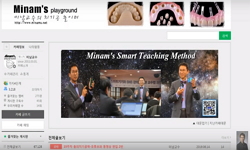This paper aimed at examining the methodology of studies of Chinese classics of Weng fang-gang(翁方綱), a scholar who lived during Qianjia(乾 嘉) period in the Qing(淸) Dynasty. Weng fang-gang said that the main purpose of his studies on Chinese...
http://chineseinput.net/에서 pinyin(병음)방식으로 중국어를 변환할 수 있습니다.
변환된 중국어를 복사하여 사용하시면 됩니다.
- 中文 을 입력하시려면 zhongwen을 입력하시고 space를누르시면됩니다.
- 北京 을 입력하시려면 beijing을 입력하시고 space를 누르시면 됩니다.

투고논문 : 옹방강(翁方綱)의 경학 연구 방법론 = Weng fang-gang옹방강(翁方綱)`s Methodology of Studies on Chinese classics
한글로보기https://www.riss.kr/link?id=A60162652
- 저자
- 발행기관
- 학술지명
- 권호사항
-
발행연도
2012
-
작성언어
Korean
-
주제어
옹방강 ; 翁方綱 ; 경학 ; 경학 연구 방법론 ; 고증학 ; 한송겸채 ; 漢宋兼采 ; Weng fang-gang ; Studies on Chinese classics ; Methodology of Studies on Chinese classics ; The Study of ancient documents ; 考證學 ; Adoption the study method of hanxue ; 한학 ; 漢學 ; and songxue ; 송학 ; 宋學
-
KDC
810.5
-
등재정보
KCI등재
-
자료형태
학술저널
- 발행기관 URL
-
수록면
413-440(28쪽)
- 제공처
-
0
상세조회 -
0
다운로드
부가정보
다국어 초록 (Multilingual Abstract)
This paper aimed at examining the methodology of studies of Chinese classics of Weng fang-gang(翁方綱), a scholar who lived during Qianjia(乾 嘉) period in the Qing(淸) Dynasty. Weng fang-gang said that the main purpose of his studies on Chinese classics was to disclose yili(義理) and, at the same time, he stressed that kaozheng(考證)·xungu(訓고)·jiaochou(校讐), etc were the necessary study method. He pointed out a problem that scholars in the Song(宋) Dynasty only concentrated on studying yili(義理) but neglecting kaozheng (考證) and xungu(訓고). In addition, as a demerit of the then current scholars studying on Chinese classics, he referred to haosheng(好勝) and shiyi(嗜異). As a concrete study method of Chinese classics, he proposed wenshi(文勢) of contents of Chinese classics, utilization of pictures containing contents of Chinese classics, a learning attitude of duowen(多 聞)·queyi(闕疑)·shenyan(愼言), and a study method of shunwenxiang- shuo(順文詳說) and zhaizikaoding(摘字考訂), etc. Weng fang-gang maintained that the goal of the study of ancient documents was to stick to yili(義理) and find out yili(義理), and the study of ancient documents was means and methods for materializing such goals. Also, as a concrete method, he proposed xungu(訓고)·biannan(辨難)·jiaochou(校讐)·jianshang(鑑賞), maintaining that historical research of zhuzi(諸子) and historical books must be performed for the same purpose as that of studies on Chinese classics. Also, he said that, as a learning attitude which researchers of the study of ancient documents must take, they must be faithful to yili(義理)·wenshi(文勢)·well-ground things(所 據之原處), and on guard for shibo(嗜博)·shisuo(嗜鎖)·shiyi(嗜異)·jinji (矜己) and must have an attitude of duowen(多聞)·queyi(闕疑)·shenyan (愼言). Such a view of Weng fang-gang was proposed from the critical standpoint with regard to problems in studying ancient documents that frequently occurred in the days.
동일학술지(권/호) 다른 논문
-
투고논문 : 『논어집해(論語集解)』와 『논어집주(論語集註)』의 주석비교(註釋比較)를 통해 본 『논어(論語)』 경문(經文)의 이해(理解)[3] -「팔일(八佾)」을 중심으로-
- 한국한문교육학회
- 김용재 ( Yong Jae Kim )
- 2012
- KCI등재
-
투고논문 : 담정(庭) 김(金)려 「황성리곡(黃城俚曲)」의 기속성(紀俗性) 연구(硏究)
- 한국한문교육학회
- 이동재 ( Dong Jae Lee )
- 2012
- KCI등재
-
외국인(外國人)을 위한(爲限) 한국어교육(韓國語敎育)에 있어서의 한자교육(漢字敎育)
- 한국한문교육학회
- 윤재민 ( Jae Min Yoon )
- 2012
- KCI등재
-
외국인(外國人)을 위한 한국어교육(韓國語敎育)에서 한자어휘교육(漢字語彙敎育)의 문제(問題)
- 한국한문교육학회
- 송병렬 ( Pyung Nyul Song )
- 2012
- KCI등재




 KISS
KISS


